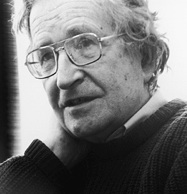
It is easy for theologians and biblical scholars to wear prophet mantles and appear to be courageously attacking the sins of the established powers. There can be an easy smugness in identifying one’s position with “the conscience” of the guild, the church, the public or nation. “Speaking Truth to Power” loses some of its awe when one finds the Power in turn rewarding its “gainsayers” with various honours and security of status. The game was played out without embarrassment from either side in Australia when one of its most socially and environmentally regressive Prime Ministers, John Howard, recommended a prominent social justice advocate cleric, Peter Hollingworth, to the Governor-Generalship, and awarded a leading environmentalist, Tim Flannery, Australian of the Year.
So it was with a little hope, but not too much, that I approached biblical scholar James Crossley’s book, Jesus in an Age of Terror, that opens with the following quotation from Noam Chomsky’s The Responsibility of Intellectuals:
It is the responsibility of intellectuals to speak the truth and to expose lies. This, at least, may seem enough of a truism to pass over without comment. Not so, however. For the modern intellectual, it is not at all obvious.
Unfortunately, Crossley himself falls into the trap of joining other religion scholars who boast of critiquing imperialist, racial and class-warfare themes while in reality missing the heart and soul of Chomsky’s message. As a consequence Crossley becomes yet another brick in the wall of the establishment power he critiques only superficially.
Here is Crossley’s ironically correct explanation of the Chomsky model of how mainstream media works:
The propaganda model shows that the press is not really an important tool of democracy and it is not really disagreeable, argumentative or subversive of political power, at least not in any significant sense. The function of the mass media is to provide support for the special interests that dominate the state and private activity. This is reflected in their choices, emphases, and omissions. It is the powerful who fix the assumptions of media discourse and decide what is allowed to be seen and heard, often with the support of academics. Disagreements reflect disagreements among the elites. Although individuals may hold very different views from the agenda of mass media, these views will not be seriously reflected in the overall agenda or agendas. (pp.3-4, Jesus in an Age of Terror)
Yet this is exactly the place where Crossley’s own supposedly “independent” studies of Christian origins find themselves. He shares with his more religiously interested colleagues the logically flawed historiographical and epistemological assumptions that sustain that guild’s reason for existence.
Everyone knows — it is a simple truism — that one needs independent verification of any narrative before making assumptions about whether it is factual or not. This, at least, may seem enough of a truism to pass over without comment. Not so, however. For the [many a biblical scholar], it is not at all obvious.
